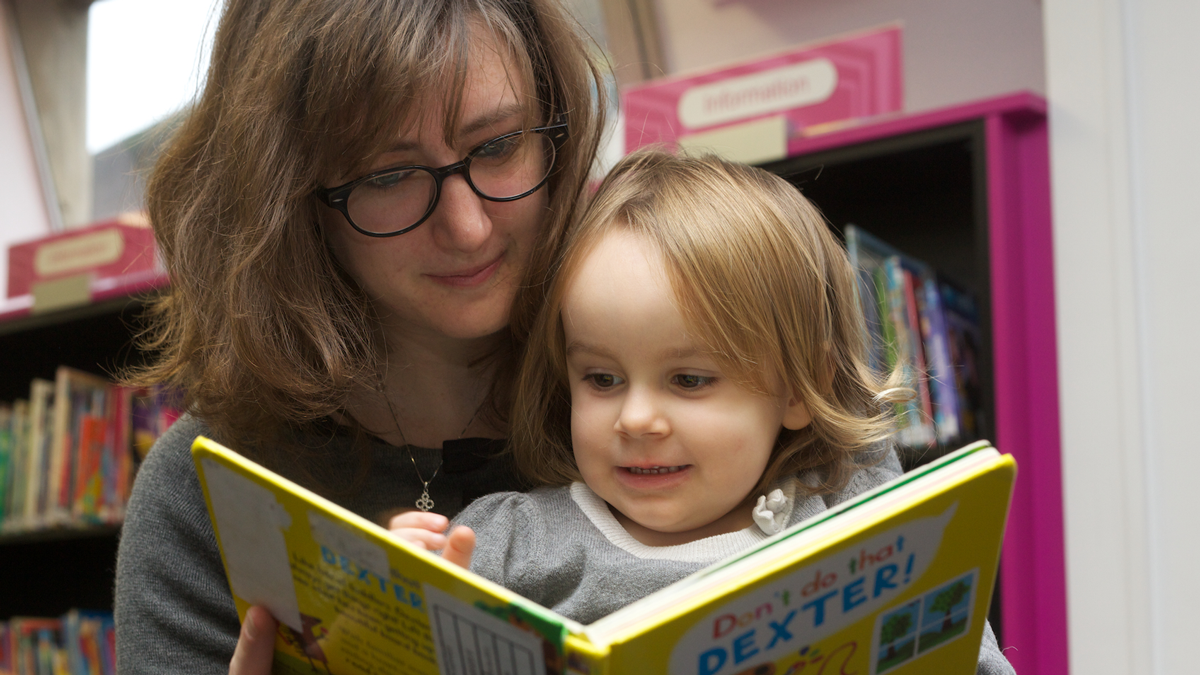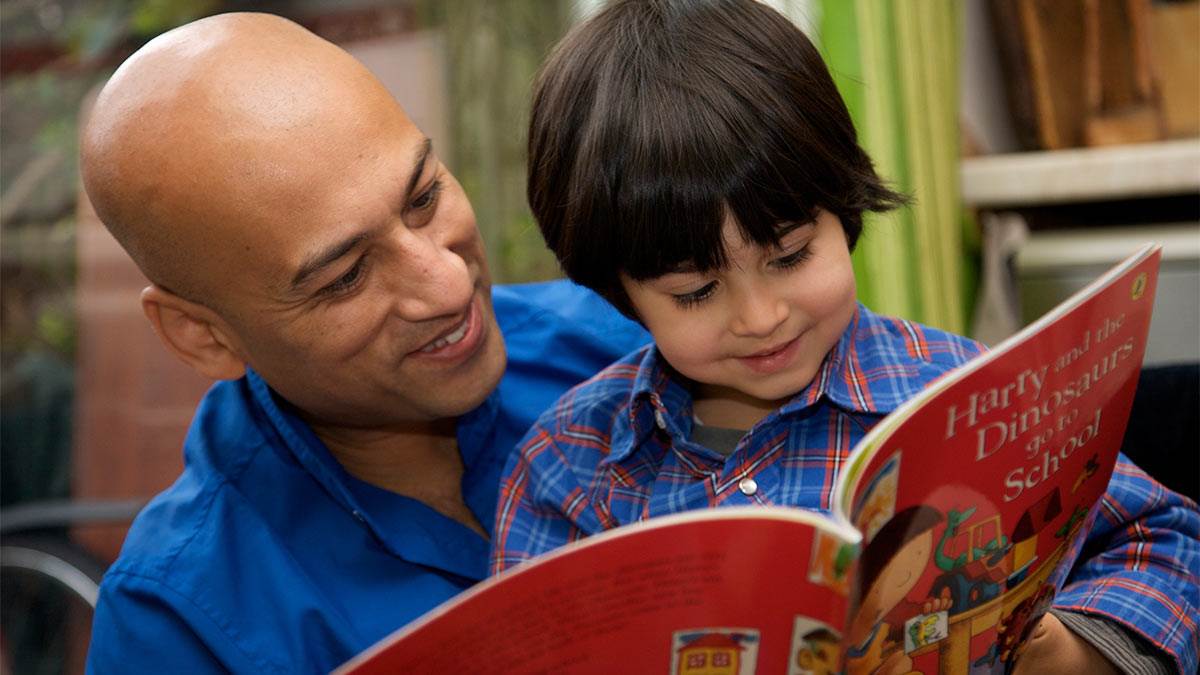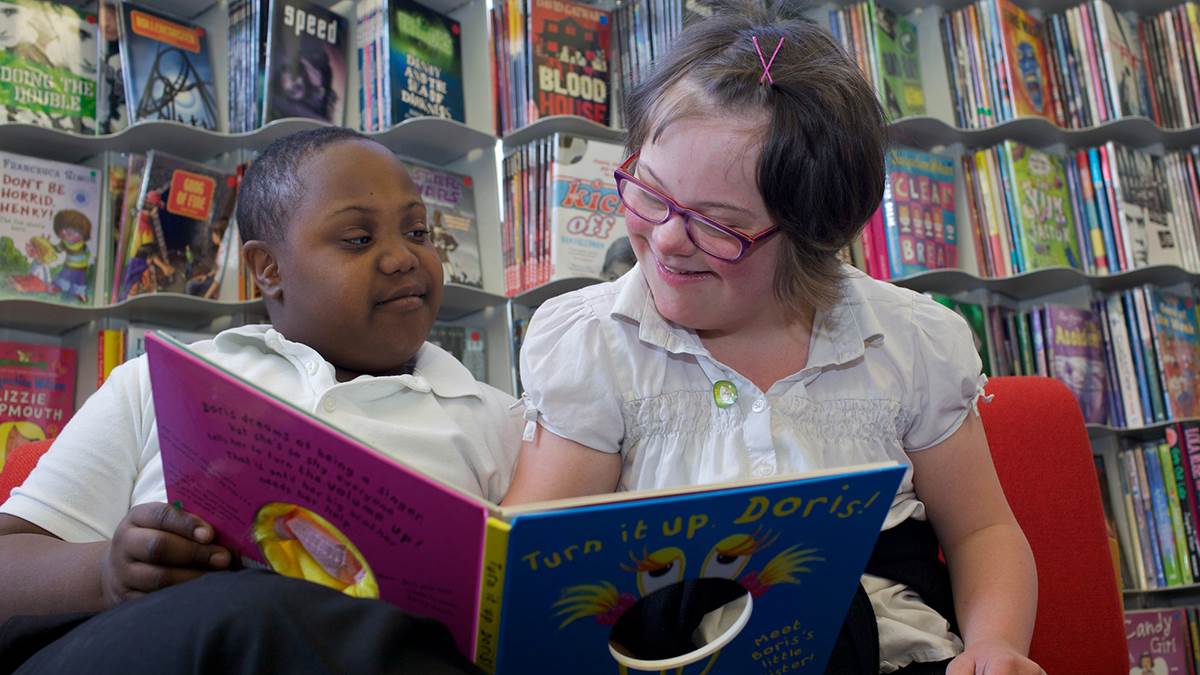Research digest: May 2017
Published on: 18 May 2017 Author: Robbie Hunt
BookTrust conduct regular research and evaluation to understand more about how our programmes work and how they can be improved.
Read on for summaries of the latest findings from two key early years programmes...

Bookstart Baby and behaviour change
The role of the Bookstart Baby gifting process in supporting shared reading, Goouch, K., et al, 2016
Bookstart Baby aims to support parents to share books as early as possible, as often as possible, and to engage in 'best practice' book sharing. The key focus of our latest Bookstart Baby research, conducted by Canterbury Christ Church University, explored the factors related to the gifting that contribute to this behaviour change for parents - using literature on behaviour change, and interviews and observations of Bookstart gifting sessions. The research found that:
The practitioners' commitment and knowledge of the programme had the most influence on gifting. A higher quality gifting session occurs when the practitioner is more invested in the programme - giving value, status and context to the gift which families are more likely to respond to.
Personalised approaches are more likely to influence parents - families arrive at the gifting session with already formed beliefs and practices, customs and cultures that affect book sharing. Where gifters are 'attuned' to families and their individual circumstances they seem better able to create links with family practice, to make literacy connections, and to support parents of babies in their first year to develop new book sharing skills.

Consistent messages that are 'drip fed' work best. It is challenging for parents to sort through all the different messages they are receiving in their baby's first year (often an emotionally and physically exhausting time). Multiple book sharing conversations that happen over time, and perhaps with different professionals, will have a stronger impact than a single event which could get lost amongst all the other messaging.
Parents may benefit from a community of readers. Although book sharing is sometimes seen as a private activity, the opportunity to see book sharing modelled and enjoyed in the company of other parents and families may also be a contributing factor in sustaining practice, linking in with 'social norms' ideas that people are motivated to think and behave in ways that are consistent with others around them.
The researchers found overwhelming warmth towards Bookstart Baby as well as the belief from all involved that it makes a positive contribution to babies and their families. They concluded with guiding principles which could enhance the gifting process including: engaging in book sharing conversations in a meaningful, personalised way, providing opportunities to try book sharing in a supportive, preferably social situation, encouraging parents to find a book sharing 'style' and routine that works for them, and reinforcing book sharing message as often as possible, starting as early as possible.
Reading for Pleasure for children with additional needs
Evaluation of BookTrust's additional needs support and resources, Robinson, D. et al, 2016
This new piece of research, conducted by the University of Derby explored how reading for pleasure is experienced by children and young people with additional needs, what the benefits are for these children, and what practices are most likely to have a positive impact on engagement with reading for pleasure. It also explored the role of BookTrust's additional needs provision within this. Little research has been done in this area before, and the findings make a valuable contribution to our understanding. The research found that:
The benefits of reading for pleasure are significant and often profound, offering opportunities for comfort, closeness and well-being. Books are important in the lives of children with additional needs, providing focus for shared attention, pleasure and enjoyment, as well as scaffolds for development (e.g. as a stimulus for movement and communication).

Personalised approaches are central to encouraging and supporting reading for pleasure for children with additional needs. The benefits are maximised when adults mediate the connection between child and book in ways that are highly individualised, so that communication, support and interaction are matched to the unique capabilities and preferences of the children and young people. In understanding needs, it's important not to over or under generalise, i.e. it should not be assumed that children who have the same impairment will need the same types of support, or that children and young people with impairments may not share experiences and needs that are common to all children.
There are a wide range of inclusive strategies that are beneficial including: using multi-modalities (e.g. visual, auditory, kinaesthetic and tactile); integrating playful activity using puppets and role play; enabling independence, responsibility and taking a lead; and making connections with everyday life and experiences through extra-textual talk.
In short, a combination of accessible and flexible resources, responsive adults and personalised strategies are important for ensuring children with additional needs are able to fully experience the benefits of reading for pleasure. The report also draws on literature to argue for provision that combines knowledge about 'all children' with knowledge about 'specific types of impairments' plus the 'unique individual'.
The BookTrust resources were highly valued by families and practitioners and contributed to delivering the positive outcomes identified above. Inclusive and diverse practices were found to be 'already embedded in the resources, guidance and approach adopted by Book Trust', and the combination of universal and targeted provision was considered positively. The report recommends a range of ways to further build on this, including more accessible and multi-sensory books for older children, and greater personalisation of the resources around the unique and complex needs (e.g. multiple impairments) of the children who access them.
Topics: 0-1 year, 2-3 years, 4-5 years, 6-8 years, 9-11 years, 12+, Bookstart, Bookmark, Early Years professional, Health professional, Librarian, Local authority professional, Parent/carer, Teacher (primary), Teacher (secondary), Research: our work Early Years, KS1, KS2, KS3, Primary, Secondary, Additional needs, Features





